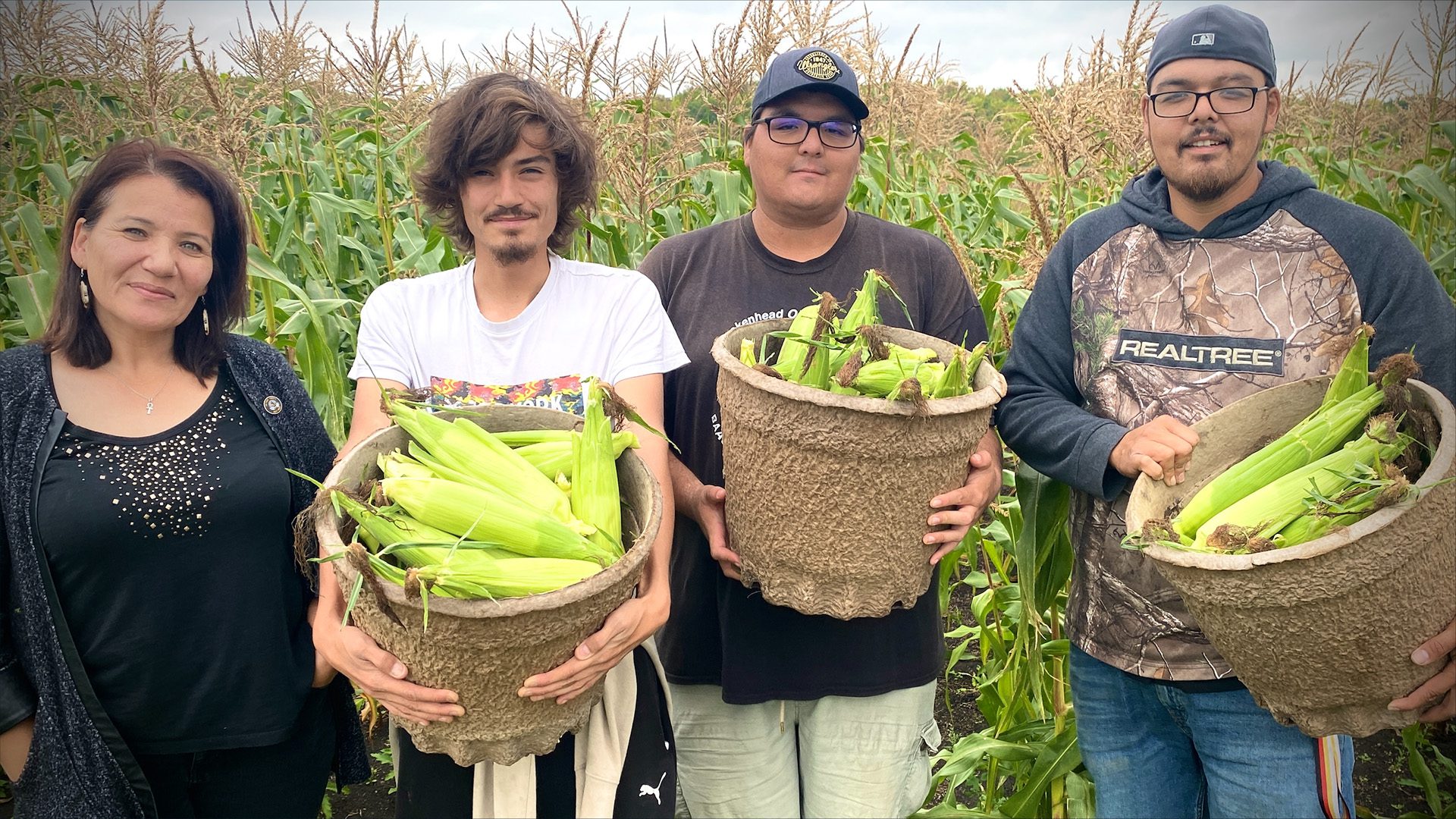Three members of the Brokenhead Ojibway Nation are stocking the local grocery store and the food bank with fresh vegetables from what used to be a field of weeds in the community.
“We’re just trying to provide an alternative, healthier options for our community with all the rising prices nowadays,” said Hayden Gilmour, a member of the community and an agricultural student at the University of Manitoba.
Rising food costs have put a strain on food banks across the country – including the one at Brokenhead.
The field Gilmour and his two companions are working on was started two years ago.
“It might not look like much right now but give us a couple of years and we’re going to have more and more acres,” said Gilmour.
Gilmour, along with brothers Corey and Colin Pangman, are part of the food sustainability project in the community while they work towards a diploma in agriculture.
This year is the first harvest from their work. So far it has brought corn, zucchini, squash and cucumbers to the food bank – 100 cobs of corn will fill some of the shelves in the local store.
With food prices soaring – it’s needed.

In Winnipeg, Vince Barletta with Harvest Manitoba, a food bank based in Winnipeg since 1985, said the demand is high.
“We’ve had a 150 per cent increase in food bank demand in Manitoba since the start of the Covid pandemic,” said Barletta. “Most of that has been in the last year and a half as we’ve seen those inflation numbers rise and rise and the other big difference is the demand for foodbanks is very broadly based.
“We’re seeing seniors, people on fixed incomes, social assistance benefits and one in 4 foodbank users are people with jobs.”
Barletta said roughly 40 per cent of foodbank users in Manitoba are Indigenous.
Once a month, the organization supplies food to First Nations across the province – including Brokenhead.
But the band’s economic development manager said that doesn’t always include fresh produce.
“We don’t always get a lot of fresh vegetables from Harvest [Manitoba], it’s usually just canned goods, some milk items, some yogurt items, but not really fresh vegetables,” said Brenda Greyeyes. “We do have like a 70 per cent diabetes rate in the community so just being able to provide farm fresh food to our community, it’s something that will really impact our families for years to come.”
New farm is in early stages
The plan is to add to the fields that Hayden and his companions are farming.
“It’s a way of life that needs to be brought back cause we can’t just rely on the industry and importing all of our food,” said Greyeyes. “We’ve got 13,000 hectares of land here. It would make sense that Brokenhead would invest in farming.”
The plan, according to Greyeyes, is simple. With water and hydro installed and more than 150 fruit trees planted by the students, the investment in the farm is expected to feed the community of 600 for generations.









